Digging into post-election partisan shifts in consumer sentiment
Republicans expect to be doing better personally even as Trump’s agenda risks reigniting inflation, everyone’s top concern
Consumer sentiment surged following the election, driven largely by improvements among Republicans. This shift reflects improved expectations for the future among more conservative respondents; in surveys conducted shortly before and after the election, the share of respondents in more conservative counties expecting to be doing better a year from now increased after the election, while there was little change in how respondents assessed their current economic conditions. Looking forward, inflation remains the top concern across the political spectrum, while a smaller share of respondents express concern about rising unemployment and the possibility of a recession. Several key policies proposed by the incoming Trump administration, including tariffs, large-scale deportation, increased political influence over the Federal Reserve, and deficit-financed tax cuts have the potential to increase inflation.
Consumer sentiment has improved, driven by a more optimistic outlook among Republicans
Improvement in the University of Michigan’s index of consumer sentiment in November and December has been driven by Republicans whose index rose by 33.6 points since October. Conversely, the index decreased 24.7 points among Democrats during the same time period.
This reversal across parties is consistent with the pattern observed around previous elections: when the White House changes hands, sentiment among members of the winning party is suddenly more positive. The fact that Republican sentiment has improved by more than Democratic sentiment has worsened since October is consistent with the idea that Republicans cheer louder and boo harder. But that is not the whole story. Using additional data, we also show that left-leaning counties seemed to have mixed feelings about the year ahead even before the election, and in these counties, there was also a slight increase in people saying they would be better-off following the election.
Different expectations about the future drive these partisan shifts in sentiment. The University of Michigan’s index of consumer expectations about the future shows dramatic, opposing shifts across parties since October while its index of current economic conditions shows similar improvement among Democrats, Republicans, and Independents over that period. Similarly, survey data from Numerator collected shortly before and after the election show large differential changes in expectations for the coming year but little difference in assessments of the past and present.
Shortly before and after the election, the share of people reporting they expected to be doing better a year from now increased more in counties where Donald Trump received a larger share of the vote in 2020.1 In the most right-leaning counties, the share saying they expected to be doing better a year from now increased from 24.7 percent shortly before the election to 51.6 percent shortly afterwards. In the most left-leaning counties, there was a small increase in the share expecting to be better-off a year later, but the share expecting to be doing worse increased from 17.6 percent to 24.8 percent. The share expecting to be worse-off fell by a similar amount in the most right-leaning counties. One thing we have in common across the political spectrum: most of us do not expect to be doing the same a year from now.
Changes from shortly before and after the election in people’s assessments of how they are doing in today’s economy and the changes in their circumstances since before the pandemic were more modest. Overall, the share who report they are doing fine or better in today’s economy increased by just 1.4 percentage points between October and November, with small improvements in all but the most right-leaning counties (where this share actually fell modestly).
Comparing today to 2019 also shows only small changes between October and November and nothing like the strong local partisanship gradient that emerges when people are asked about their expectations for the coming year.
Concerns about inflation outweigh concerns about recession across the political spectrum
While Democrats and Republicans have starkly different expectations about what is likely to happen over the coming year, the high-level issues they consider most important are fairly similar and little changed since the election. When asked to choose the single most important issue among four options, nearly one in two select rising prices, while just over one in four select issues related to law and order. Concern about rising unemployment is less prominent, the top choice of only about one in seven. When asked directly about their relative concern about rising prices and unemployment, nearly four in five have consistently been more concerned about rising prices.
Concerns about these issues differ only slightly across left-leaning and right-leaning counties. Across all groups of counties, rising prices is the top concern. Among these four choices (rising prices, law and order, political unrest, and recession/unemployment), people have been the least concerned about recession/unemployment.
Despite the substantially greater concern about inflation across the political spectrum, consumers also agree that both the economy as a whole and their households would be better-off if interest rates were lower. Overall, 63 percent say their household would be better-off financially if interest rates were lower, while 79 percent say that interest rates are currently too high for the economy as a whole. People in the most right-leaning counties are most likely to say that interest rates are too high for the economy as a whole (84 percent), and those in the most left-leaning counties are least likely (74 percent). This partisan gap is also reflected based on where people get their news: Fox News viewers are most likely to think interest rates are too high (90 percent), while CNN viewers are least likely (67 percent).
Coming policy changes could put upward pressure on prices, which is exactly the issue people are most concerned about
Despite widespread concern about rising prices, the incoming Trump administration seems poised to pursue various policies that could put upward pressure on prices. These policies include the following:
Tariffs: At various points, President-elect Trump has advocated for across-the-board tariffs on the order of ten percent and additional 50 percent tariffs on Chinese goods. These taxes on imported goods would directly raise the prices of those goods to US consumers. They would also create opportunities for domestic manufacturers to raise prices since they would face less intense competition from abroad. CBO has estimated that instituting a tariff regime like this would increase price levels by about one percent.
Large-scale deportations: Deporting a substantial number of undocumented immigrants was a consistent theme of the Trump campaign. Such deportations would reduce labor supply and could drive up prices in industries with large undocumented workforces, such as agriculture and residential construction. While reductions in demand associated with deportations could offset this pressure to some extent with respect to overall price levels, food and housing prices, which have been salient recently, could be more exposed to further increases.
Threats to Federal Reserve independence: During the campaign, President-elect Trump expressed (and then walked back) a desire to influence the Federal Reserve’s interest rate decisions. During his first term, he had a more adversarial public relationship with the Federal Reserve than other recent presidents, criticizing rate hikes and seemingly hoping to encourage the Fed to keep interest rates lower. A Federal Reserve that asymmetrically prioritizes lower interest rates due to political pressure would likely result in higher inflation.
Deficit-financed tax cuts: Any additional deficit-financed tax cuts beyond a simple extension of the Tax Cuts and Jobs Act’s individual income tax provisions (which are set to expire at the end of 2025) would likely stimulate aggregate demand, putting upward pressure on prices. The Federal Reserve could combat this inflationary pressure but it would have to keep interest rates higher at a time when people already think interest rates are too high.
To the extent many people, especially those on the right, expect the Trump administration to achieve its stated goals, their improved expectations for the coming year seem partially at odds with their concern about inflation. Households’ financial circumstances could improve despite higher inflation if incomes increase by more than price levels, but some of the Trump administration’s proposed policies could create headwinds to growth. Many US exporters are also importers and would be exposed to higher input costs under across-the-board tariffs and potential retaliatory tariffs in their export markets. Shrinking the labor force through large-scale deportations would reduce the economy’s productive capacity.2 Large-scale deportations would also reduce the consumer base on which many US firms and small businesses rely to buy their goods and services. The net result could be faster inflation and a weaker economy than we have today. Expectations have improved, and those on the right have optimistic expectations that the coming year will have almost no inflation. People may become disillusioned if the policies put in place fail to make them better-off and risk making them worse-off during the coming year.
We group counties based on their vote shares into population quintiles. “Left” represents approximately 20% of the US population living in counties with the greatest vote shares for Biden in 2020. “Right” represents approximately 20% of the US population living in counties with the greatest vote shares for Trump in 2020.
Immigration was responsible for about 20 percent of growth and more than the entire increase in the labor force from 2019 through early 2024.


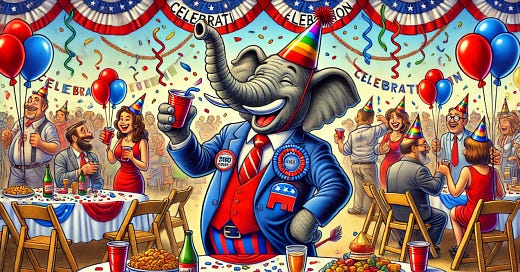





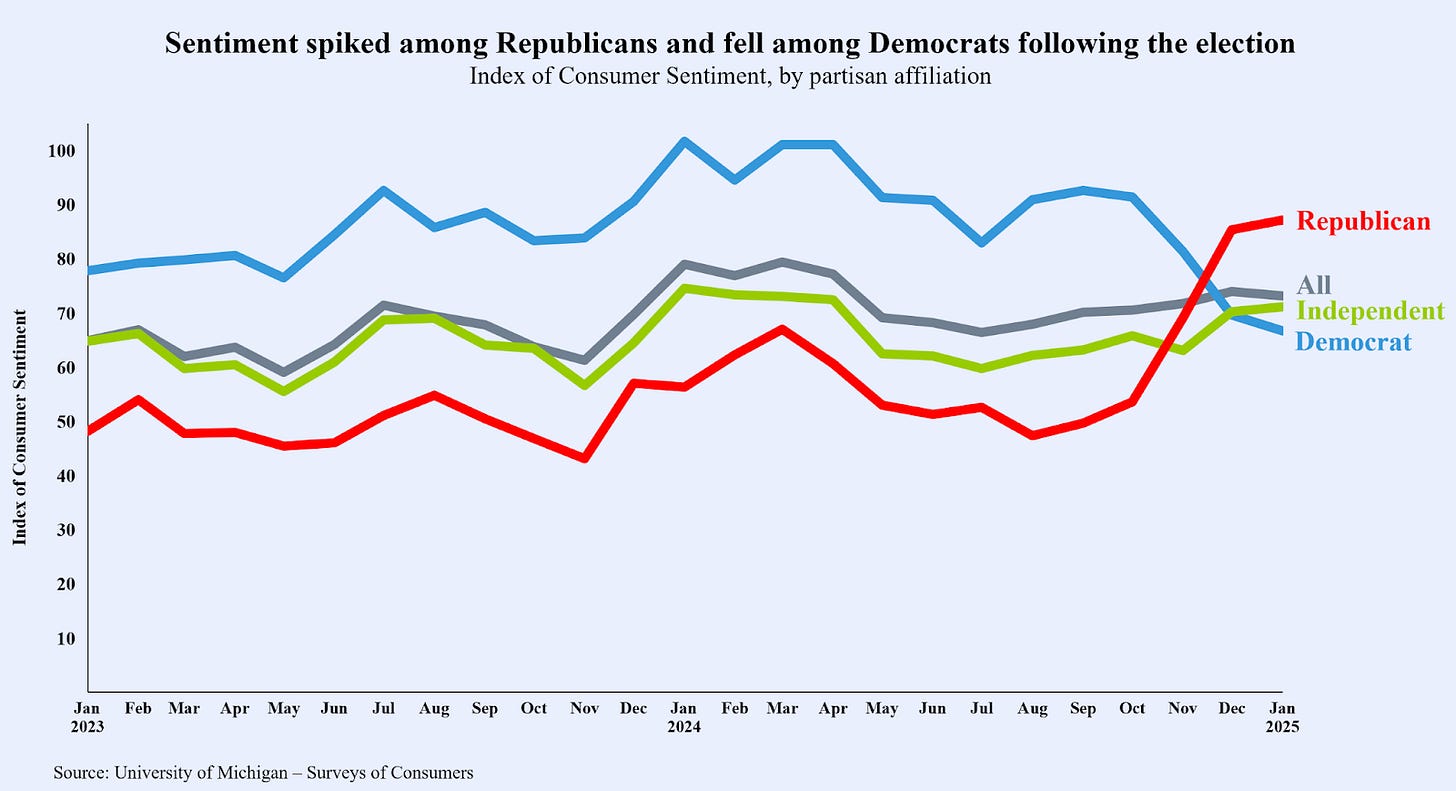
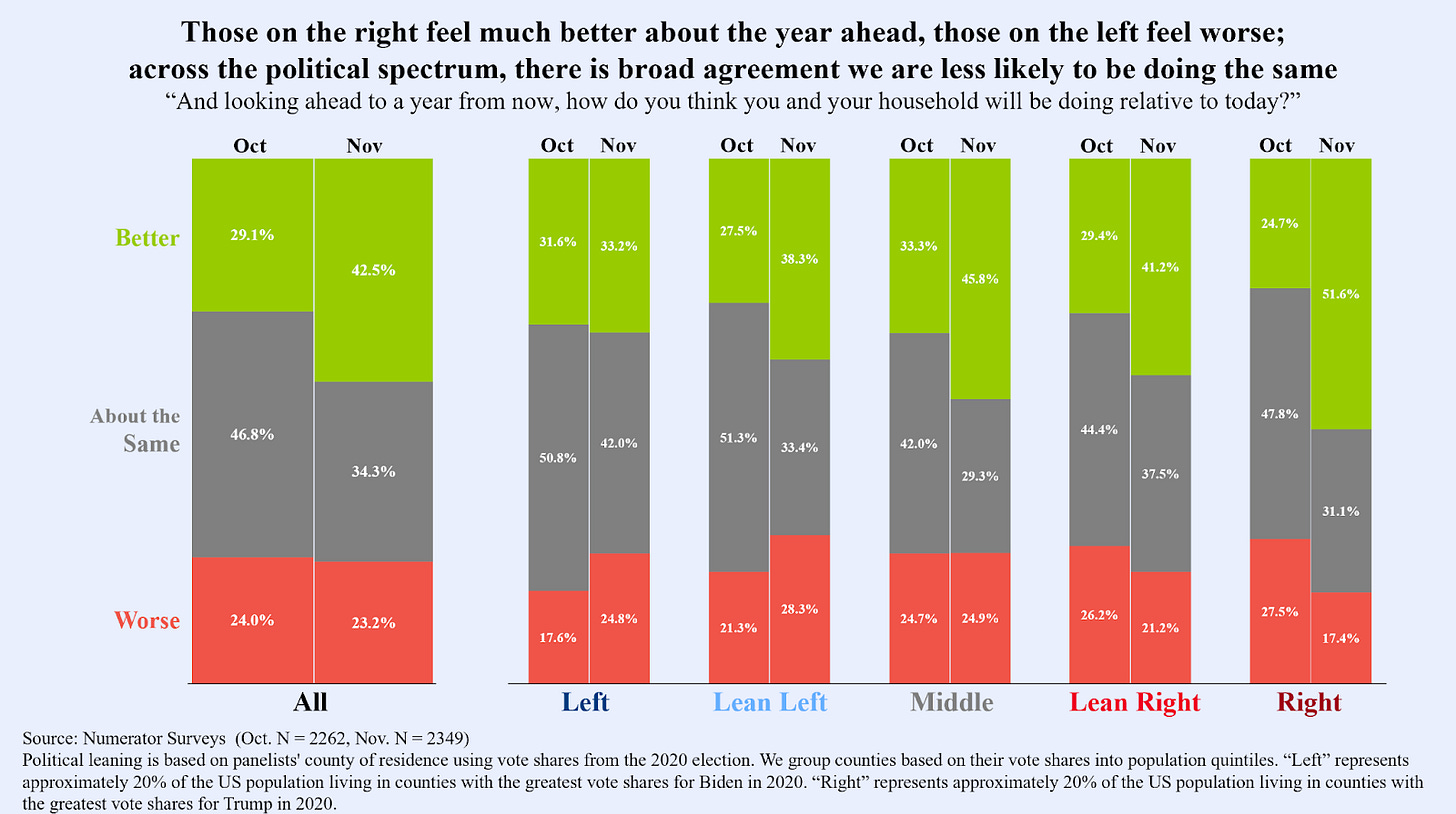
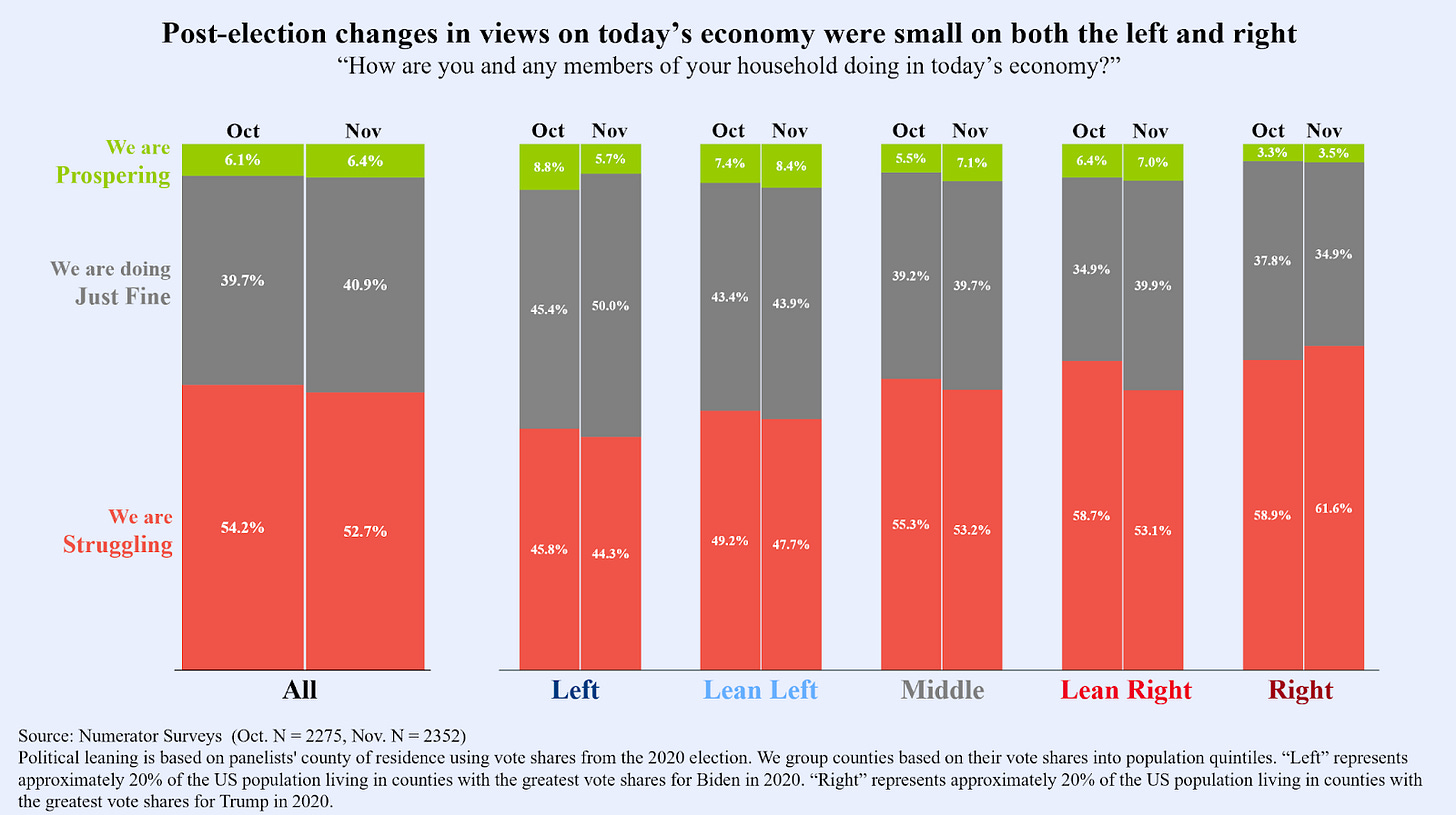
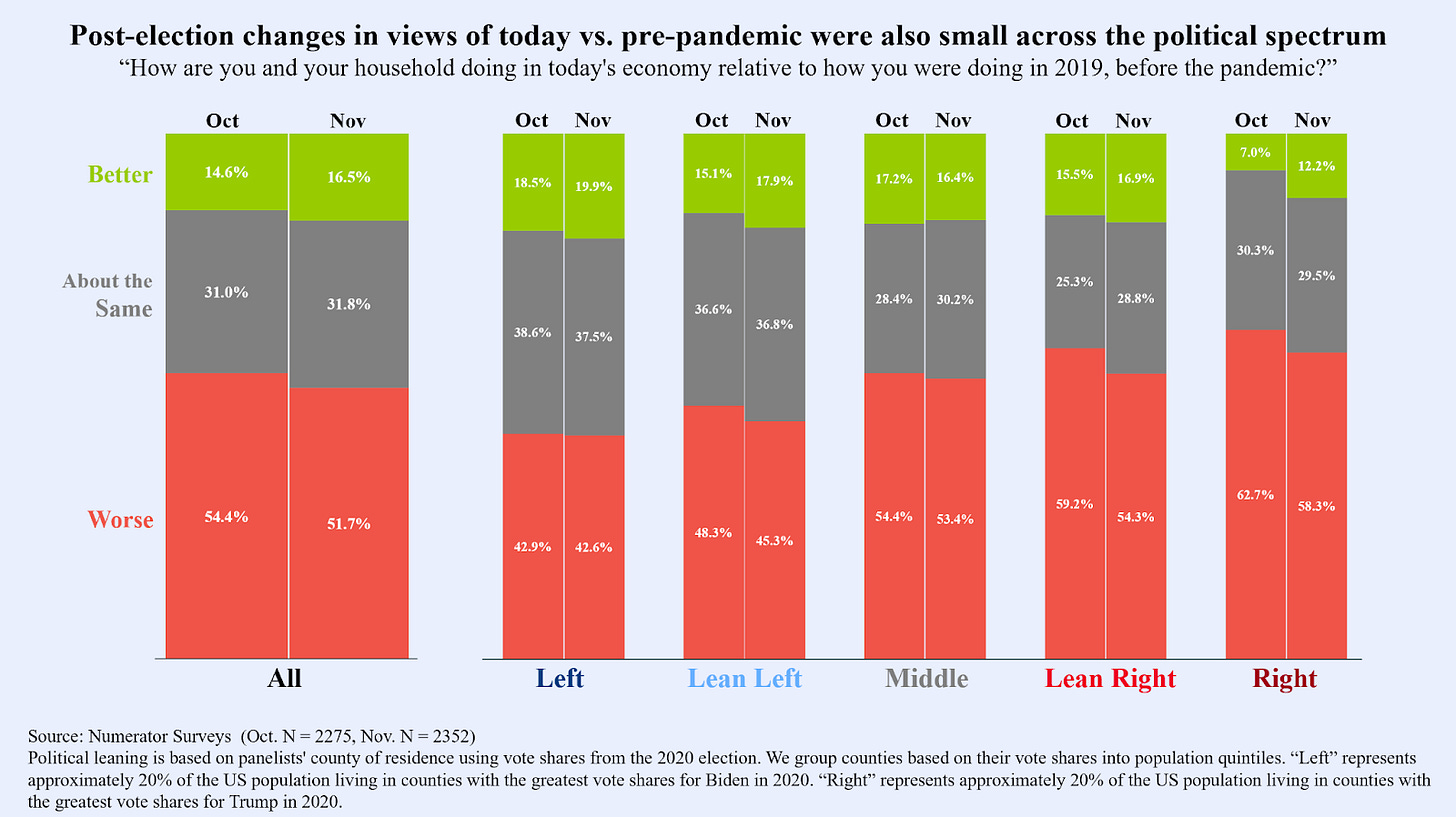
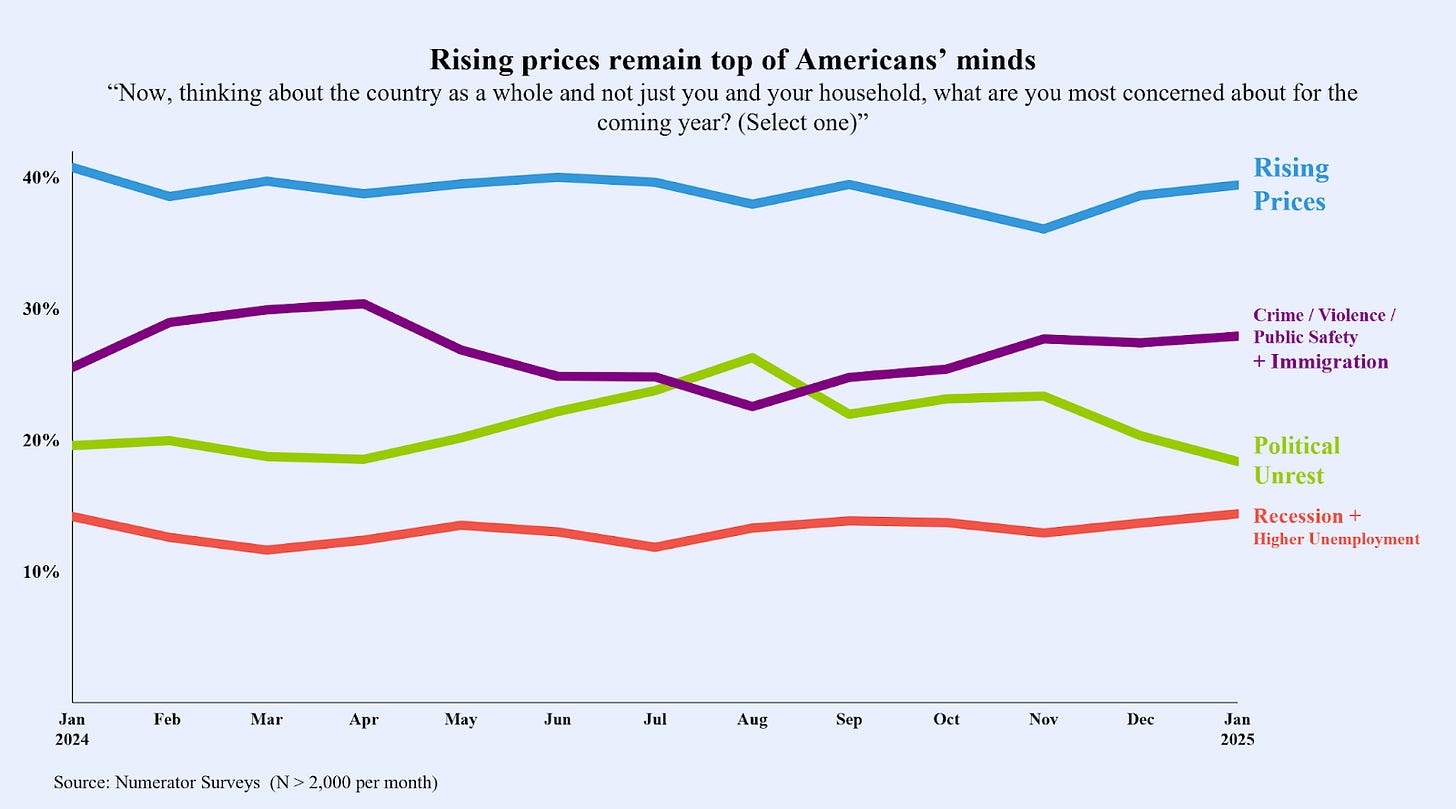
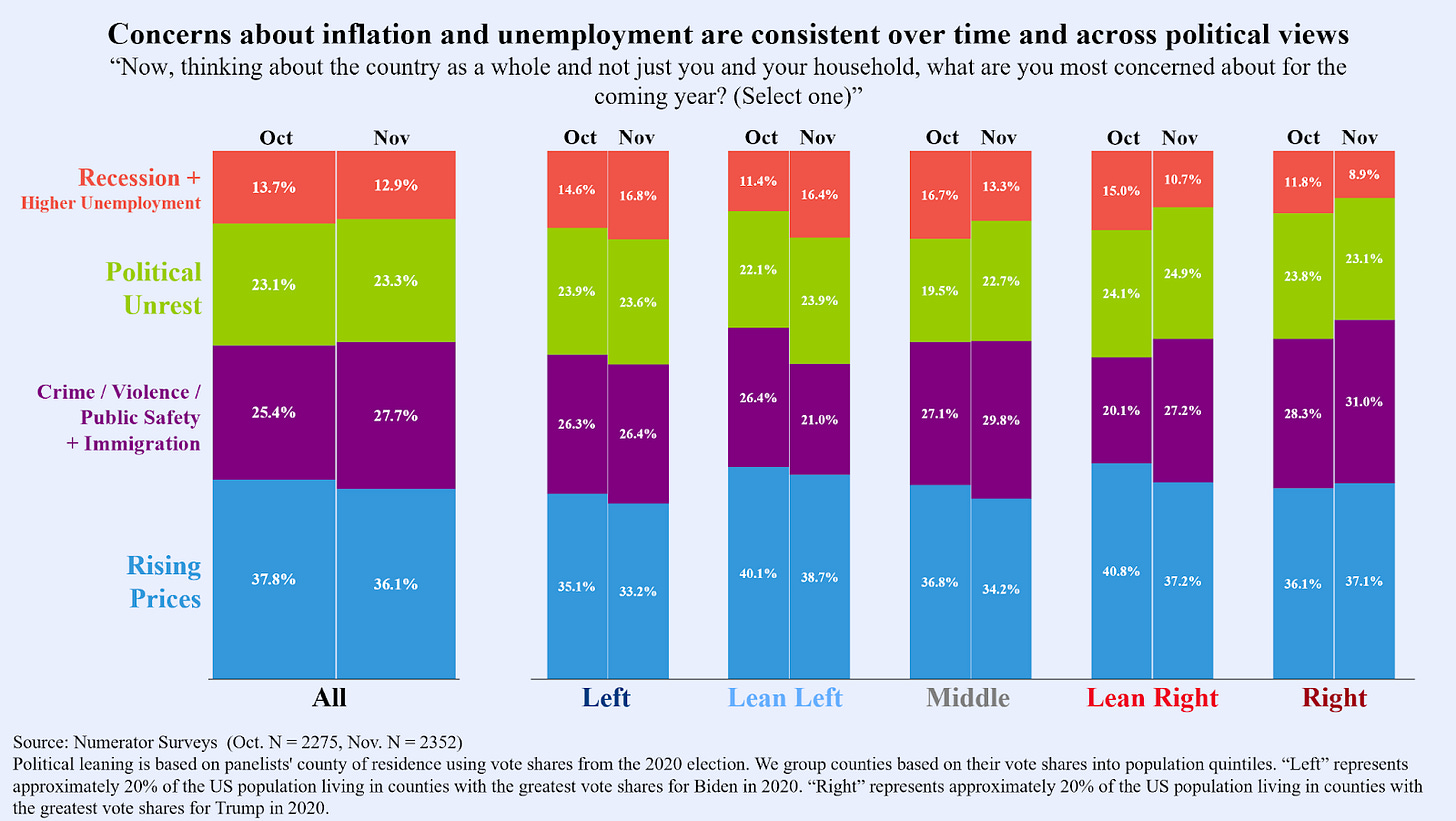
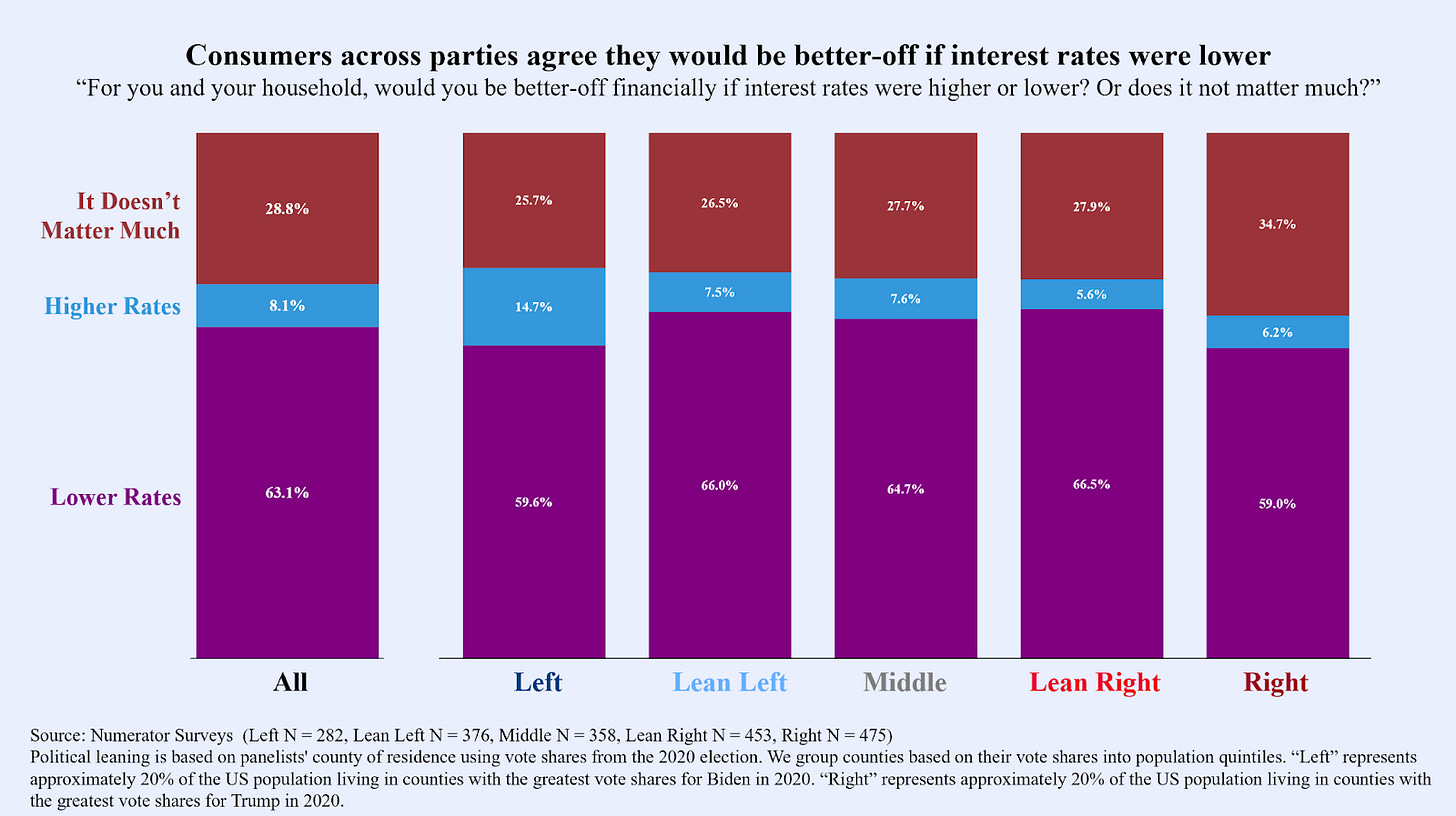
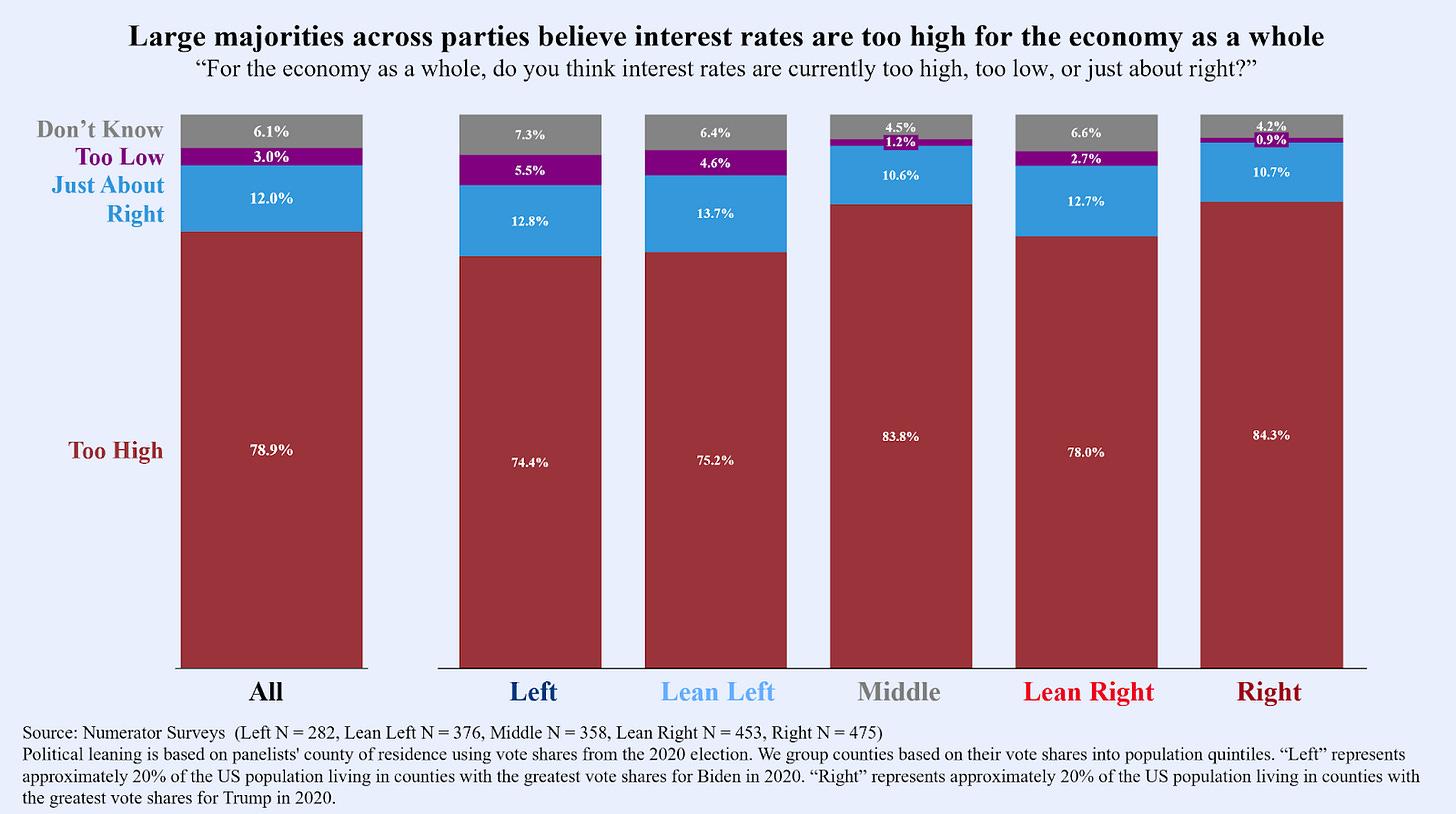
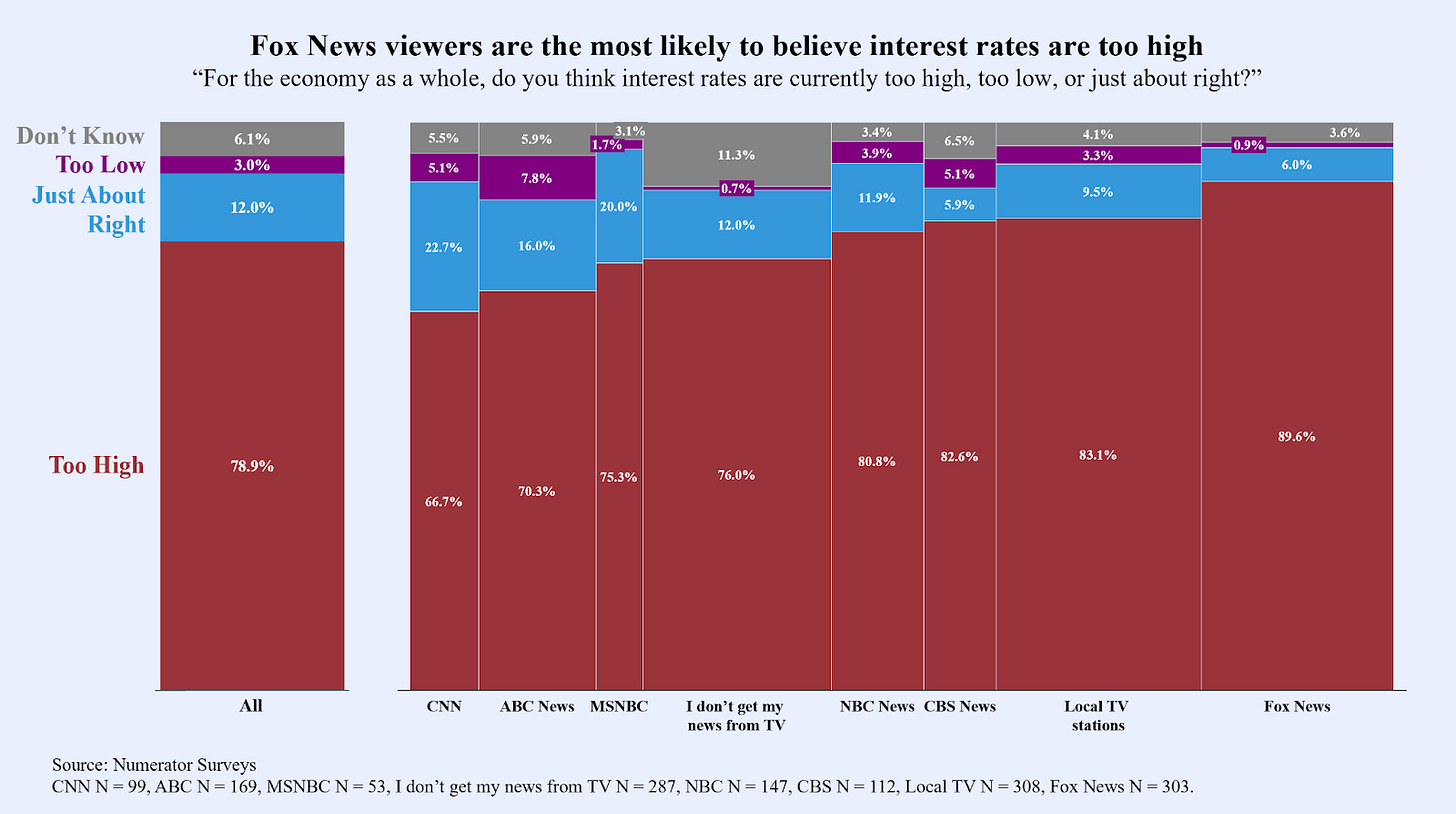
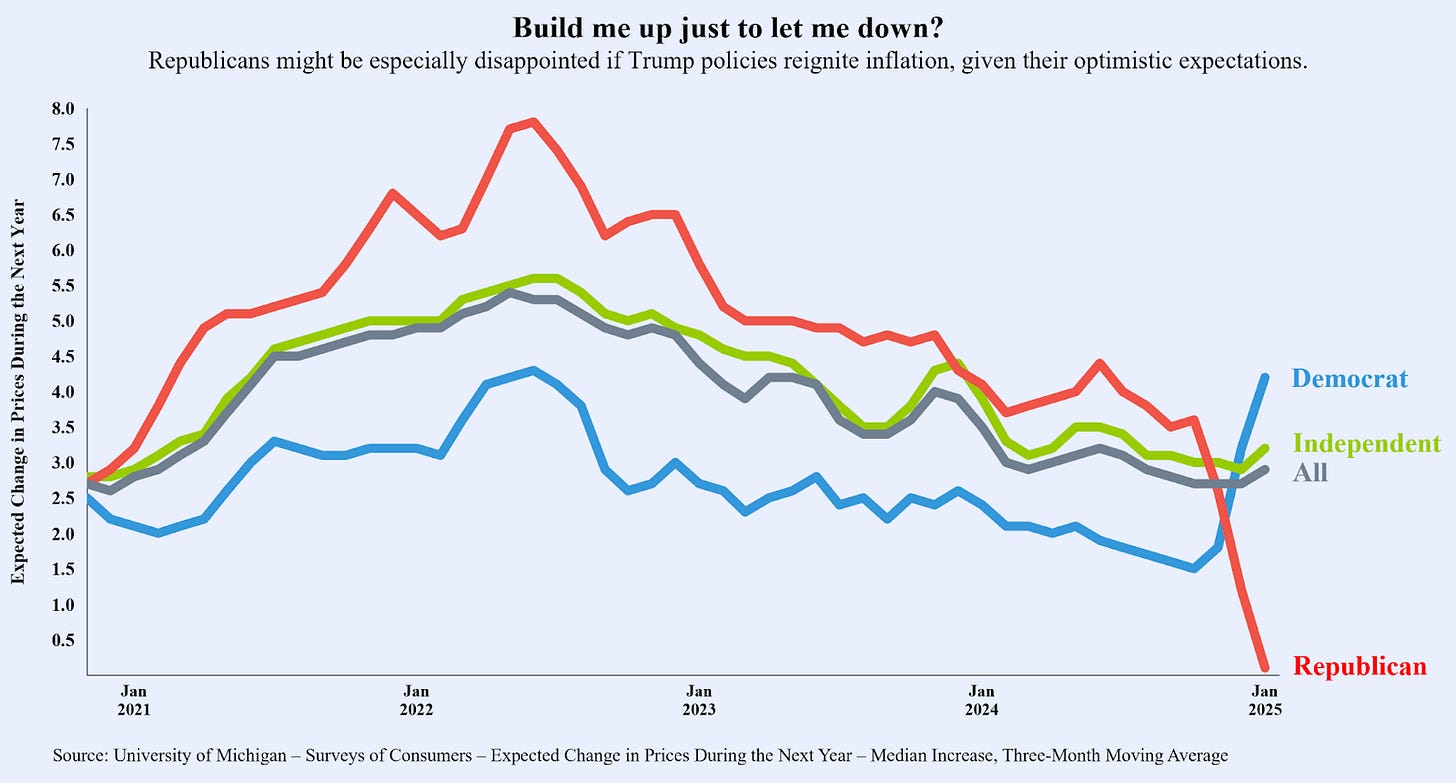


Republicans expecting Literally Zero inflation because their magical idol is President is the most Republican shit ever.
Optimism is a normal sentiment expressed by members of the tribe ! It's true across nations; Simply because support for the leader is natural amongst the group. This translates both in politics and sports too. It's the casual sympathizers that get disillusioned first. In our case people, not republican in affiliation, who voted for Trump. We live in sobering times, they in hungover, preheadache times.